The Path of Those Who Followed by Shuayb Sammar
The Path of Those Who Followed by Shuayb Sammar
Publisher:
IIPH (International Islamic Publishing House)
Author:
Shuayb Sammar
Language:
English
Binding:
Hard Cover
Pages: 246
Size: 14x21cm
Couldn't load pickup availability
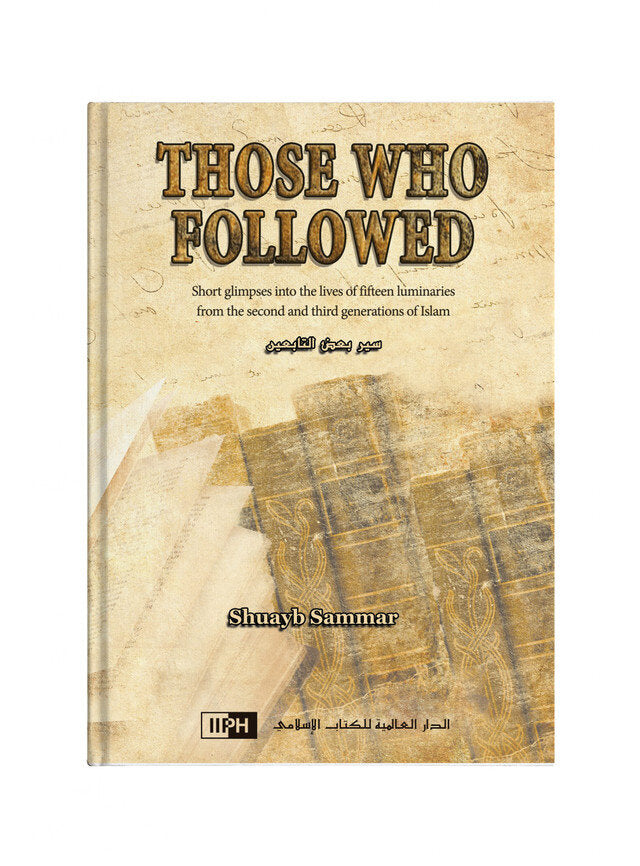
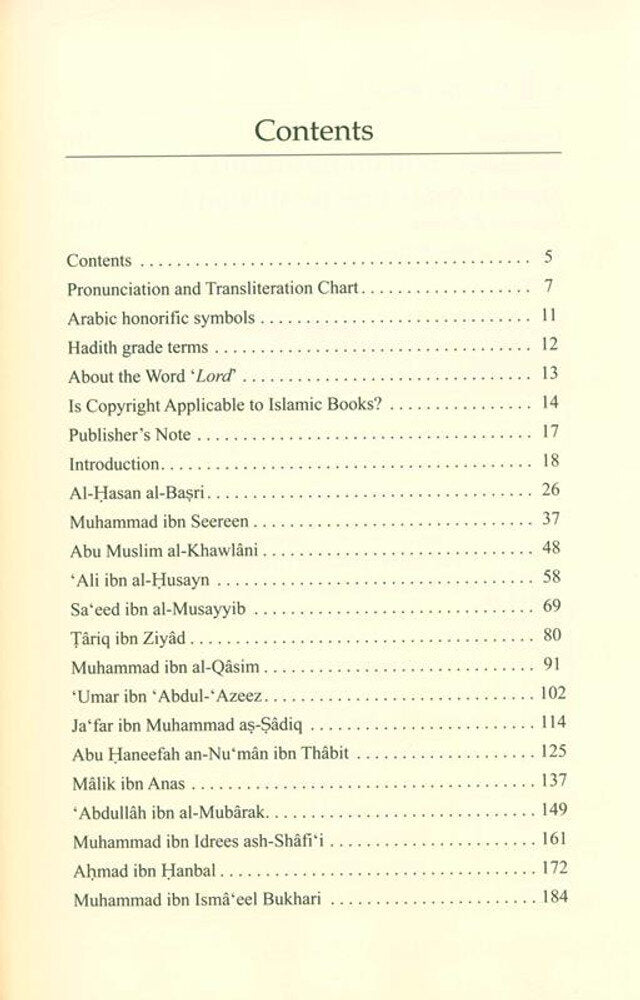
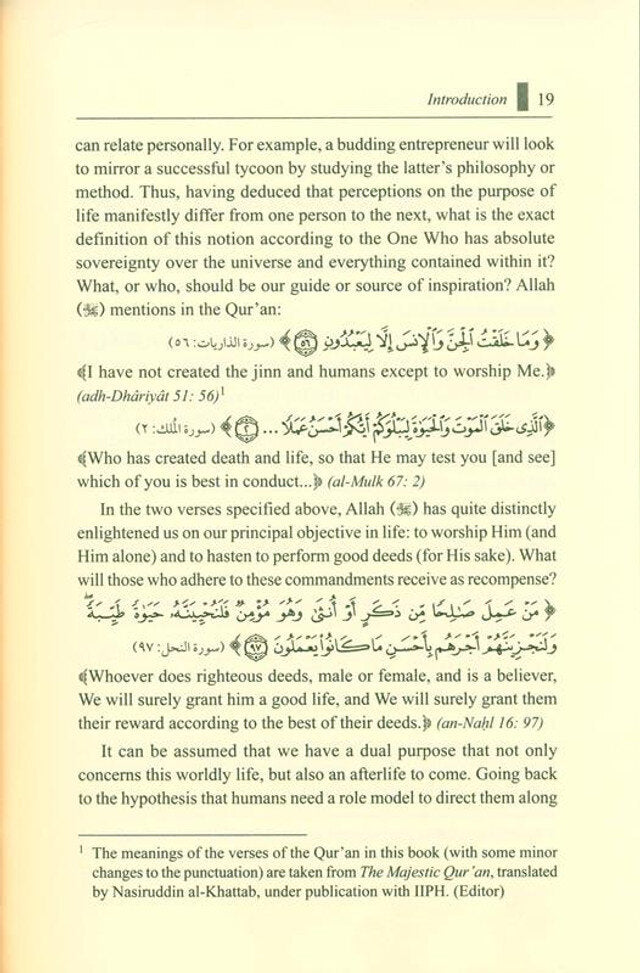
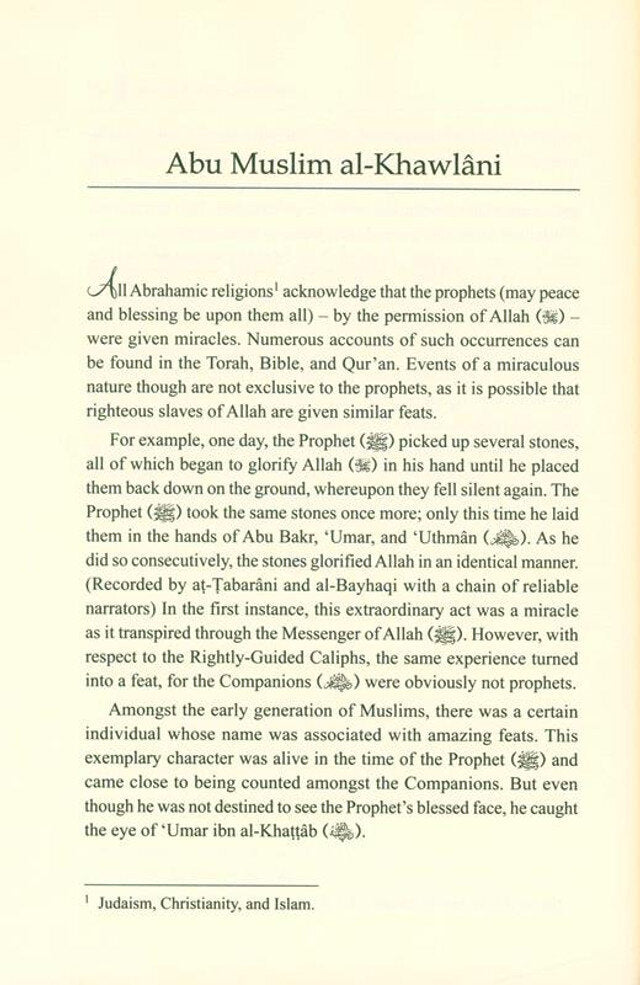
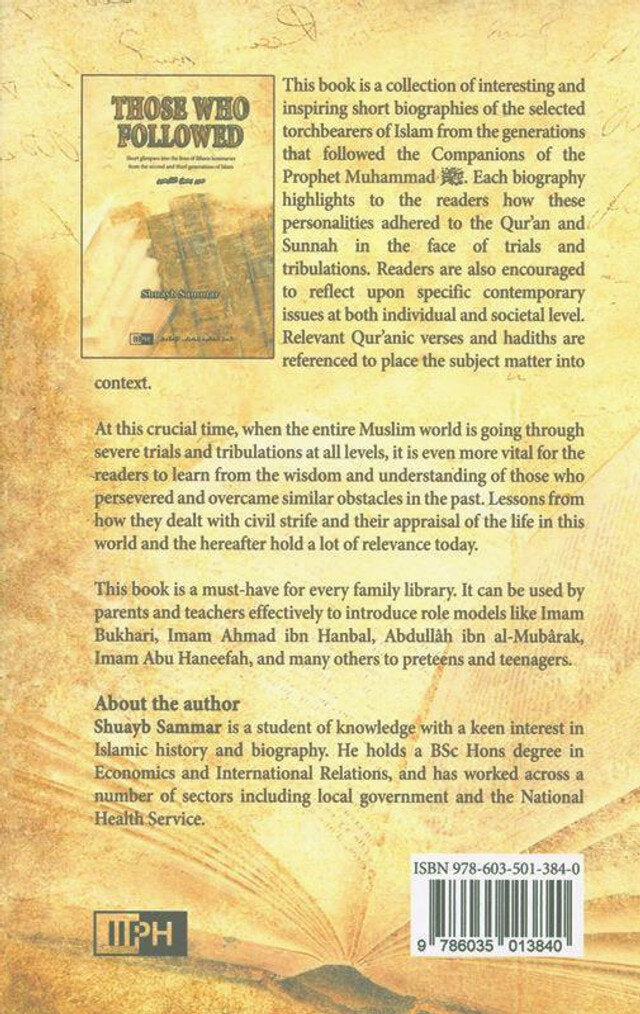
Collapsible content
Description of Book
The Path of Those Who Followed by Shuayb Sammar
Brief Insights into the Lives of Fifteen Key Figures from the Early Generations of Islam
This book features a collection of brief yet powerful biographies of fifteen influential figures from the second and third generations of Islam, following the Companions of the Prophet Muhammad (PBUH). Each story highlights how these luminaries remained steadfast in their commitment to the Qur’an and Sunnah, despite facing numerous trials. Through these accounts, readers are encouraged to reflect on contemporary personal and societal issues, with relevant Qur’anic verses and hadiths providing context.
In a time when the Muslim world faces challenges on many fronts, the wisdom and resilience of these historical figures offer valuable lessons. Their experiences with civil unrest and their perspectives on life and the hereafter are especially relevant today.
This book is an essential addition to any family library and serves as an excellent tool for parents and educators to introduce inspiring role models, such as Imam Bukhari, Imam Ahmad ibn Hanbal, and Imam Abu Haneefah , to young readers, fostering a deeper connection with Islamic history and values.
Publisher
IIPH (International Islamic Publishing House)
Author
- Shuayb Sammar
Sample Pages - Content
Page:01
THOSE WHO FOLLOWED
Short glimpses into the lives of fifteen luminaries from the second and third generations of Islam
سير بعين التابعين
Shuayb Sammar
الدار العالمية للكتاب الإسلامي IIPH
ΠΡΗ
Page:02
Contents
Contents
Pronunciation and Transliteration Chart.
Arabic honorific symbols
Hadith grade terms
About the Word 'Lord'
Is Copyright Applicable to Islamic Books?
Publisher's Note
Introduction...
Al-Hasan al-Başri...
Muhammad ibn Seereen
Abu Muslim al-Khawlâni.
'Ali ibn al-Husayn
Sa'eed ibn al-Musayyib
Târiq ibn Ziyâd.
5
7
11
12
13
14
17
18
26
37
48
58
69
80
Muhammad ibn al-Qâsim.
91
'Umar ibn 'Abdul-Azeez..
102
Ja'far ibn Muhammad aş-Şâdiq
114
Abu Haneefah an-Nu'mân ibn Thâbit
125
Mâlik ibn Anas
137
'Abdullâh ibn al-Mubarak..
149
Muhammad ibn Idrees ash-Shâfi'i
161
Ahmad ibn Hanbal...
172
Muhammad ibn Ismâ'eel Bukhari
Page:03
Introduction 19
can relate personally. For example, a budding entrepreneur will look to mirror a successful tycoon by studying the latter's philosophy or method. Thus, having deduced that perceptions on the purpose of life manifestly differ from one person to the next, what is the exact definition of this notion according to the One Who has absolute sovereignty over the universe and everything contained within it? What, or who, should be our guide or source of inspiration? Allah (3) mentions in the Qur'an:
وَمَا خَلَقْتُ الْجِنَّ وَالْإِنسَ إِلَّا لِيَعْبُدُونِ ) (سورة الذاريات: ٥٦)
I have not created the jinn and humans except to worship Me. (adh-Dhariyat 51:56)1
الَّذِي خَلَقَ الْمَوْتَ وَالْحَيَوَةَ لِيَبْلُوَكُمْ أَيُّكُمْ أَحْسَنُ عَمَلًا ... ) (سورة الملك : ٢)
Who has created death and life, so that He may test you [and see] which of you is best in conduct... (al-Mulk 67: 2)
In the two verses specified above, Allah (3) has quite distinctly enlightened us on our principal objective in life: to worship Him (and Him alone) and to hasten to perform good deeds (for His sake). What will those who adhere to these commandments receive as recompense?
مَنْ عَمِلَ صَلِحًا مِّن ذَكَرٍ أَوْ أُنثَى وَهُوَ مُؤْمِنٌ فَلَنُحْيِيَنَّهُ حَيَوَةً طَيِّبَةٌ
وَلَنَجْزِيَنَّهُمْ أَجْرَهُم بِأَحْسَنِ مَا كَانُوا يَعْمَلُونَ ) (سورة النحل: ٩٧)
Whoever does righteous deeds, male or female, and is a believer, We will surely grant him a good life, and We will surely grant them their reward according to the best of their deeds. (an-Nahl 16: 97)
It can be assumed that we have a dual purpose that not only concerns this worldly life, but also an afterlife to come. Going back to the hypothesis that humans need a role model to direct them along
The meanings of the verses of the Qur'an in this book (with some minor changes to the punctuation) are taken from The Majestic Qur'an, translated by Nasiruddin al-Khattab, under publication with IIPH. (Editor)
Page:04
Abu Muslim al-Khawlâni
ALLA
Abrahamic religions' acknowledge that the prophets (may peace and blessing be upon them all) - by the permission of Allah (%) - were given miracles. Numerous accounts of such occurrences can be found in the Torah, Bible, and Qur'an. Events of a miraculous nature though are not exclusive to the prophets, as it is possible that righteous slaves of Allah are given similar feats.
For example, one day, the Prophet () picked up several stones, all of which began to glorify Allah (3) in his hand until he placed them back down on the ground, whereupon they fell silent again. The Prophet () took the same stones once more; only this time he laid them in the hands of Abu Bakr, 'Umar, and 'Uthmân (). As he did so consecutively, the stones glorified Allah in an identical manner. (Recorded by at-Tabarâni and al-Bayhaqi with a chain of reliable narrators) In the first instance, this extraordinary act was a miracle as it transpired through the Messenger of Allah (). However, with respect to the Rightly-Guided Caliphs, the same experience turned into a feat, for the Companions () were obviously not prophets.
Amongst the early generation of Muslims, there was a certain individual whose name was associated with amazing feats. This exemplary character was alive in the time of the Prophet () and came close to being counted amongst the Companions. But even though he was not destined to see the Prophet's blessed face, he caught the eye of 'Umar ibn al-Khattab ().
Judaism, Christianity, and Islam.
Page:05
THOSE WHO FOLLOWED
Sinest Sammy
context.
This book is a collection of interesting and inspiring short biographies of the selected torchbearers of Islam from the generations that followed the Companions of the Prophet Muhammad. Each biography highlights to the readers how these personalities adhered to the Qur'an and Sunnah in the face of trials and tribulations. Readers are also encouraged to reflect upon specific contemporary issues at both individual and societal level. Relevant Qur'anic verses and hadiths are referenced to place the subject matter into
At this crucial time, when the entire Muslim world is going through severe trials and tribulations at all levels, it is even more vital for the readers to learn from the wisdom and understanding of those who persevered and overcame similar obstacles in the past. Lessons from how they dealt with civil strife and their appraisal of the life in this world and the hereafter hold a lot of relevance today.
This book is a must-have for every family library. It can be used by parents and teachers effectively to introduce role models like Imam Bukhari, Imam Ahmad ibn Hanbal, Abdullah ibn al-Mubarak, Imam Abu Haneefah, and many others to preteens and teenagers.
About the author
Shuayb Sammar is a student of knowledge with a keen interest in Islamic history and biography. He holds a BSc Hons degree in Economics and International Relations, and has worked across a number of sectors including local government and the National Health Service.
IIPH
ISBN 978-603-501-384-0
9 786035 013840
Shuayb Sammar
Shuayb Sammar was a notable figure in early Islamic history, recognized for his commitment to Islamic values and his wisdom in facing various challenges. His life and actions have been a source of inspiration for many who seek to understand how to adhere to the teachings of the Qur'an and Sunnah in the face of adversity. His story often serves as a reminder of the importance of perseverance, moral integrity, and reliance on Allah's guidance during difficult times.





